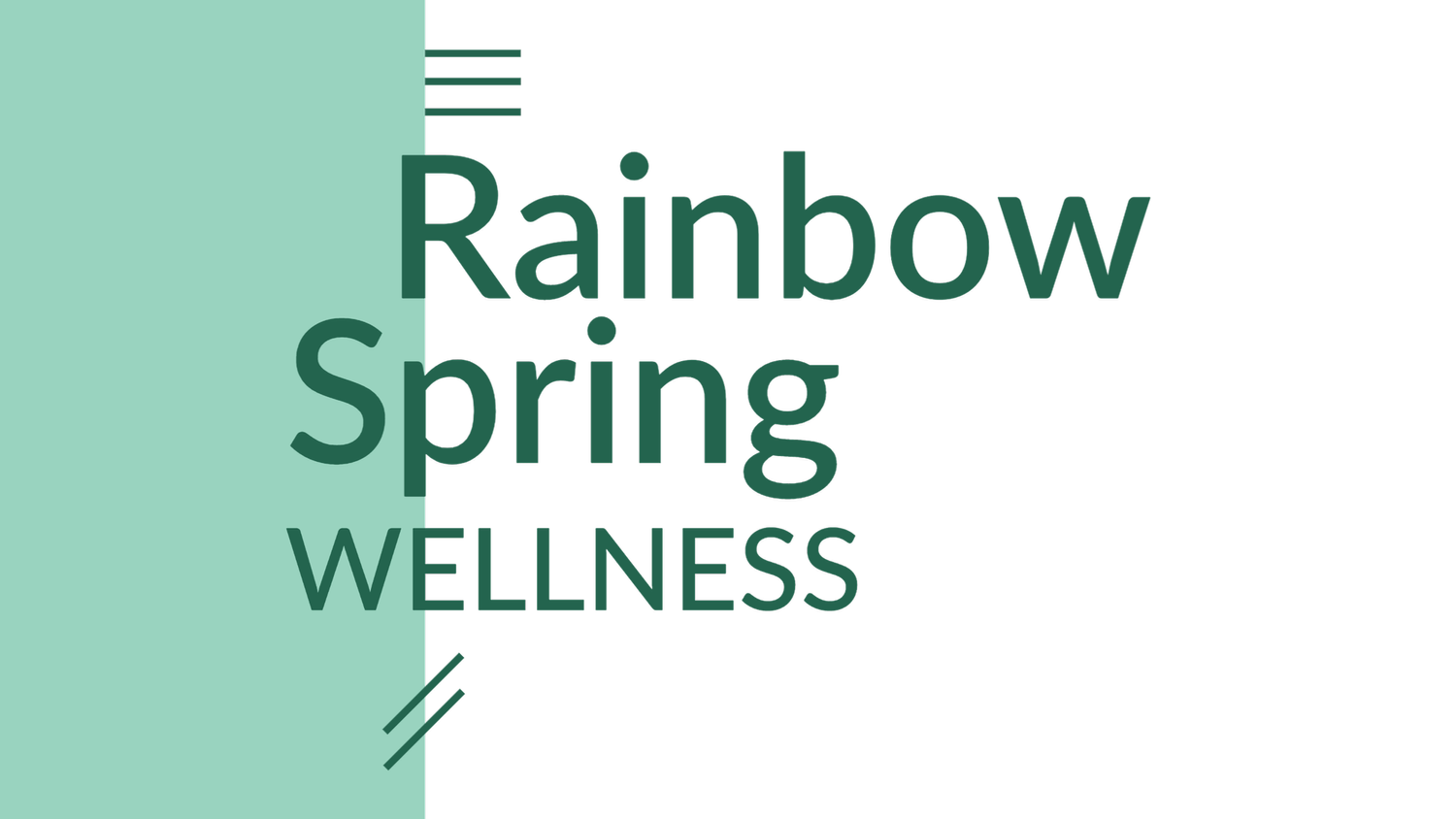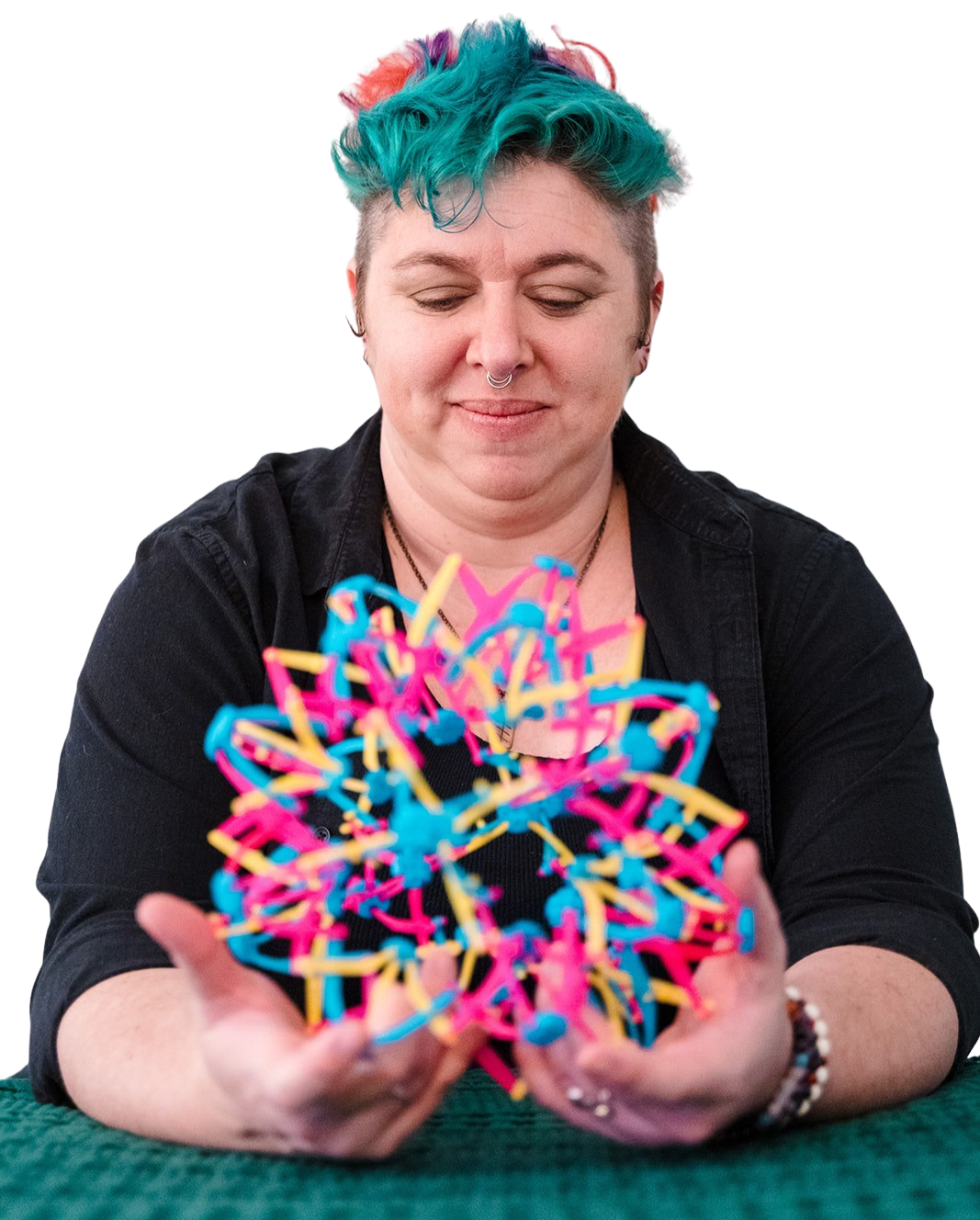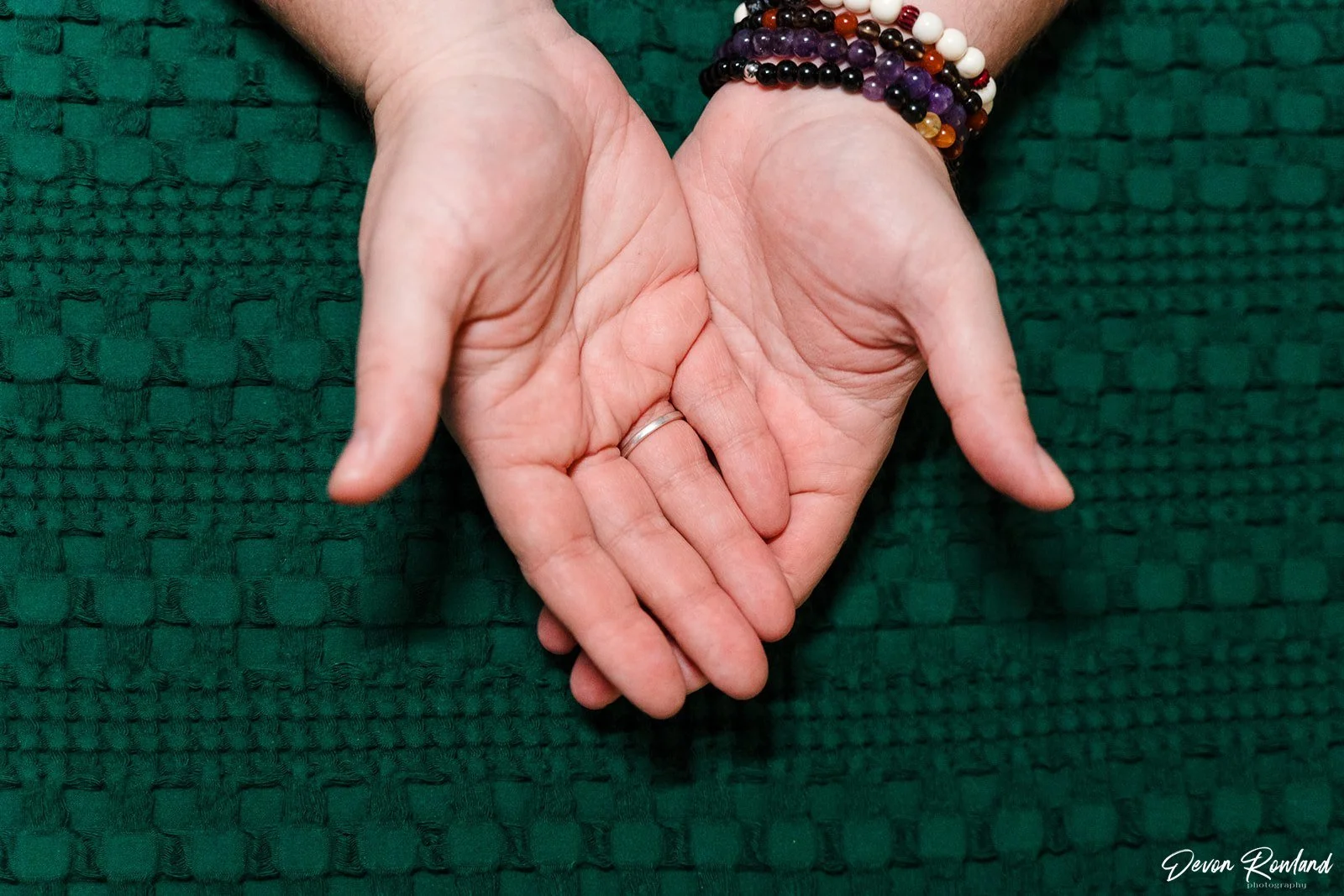
Treatment Approaches
Integrative occupational therapy for your body and embodied mind
Do you feel out of tune?
Maybe you’re overwhelmed, and it’s keeping you from doing the things you care about.
stuck in fight, flight, or freeze
nervous system dysregulation
forgetting how to feel safe, or maybe never knew in the first place
constant stress
can’t truly rest or relax
trauma sapping your resilience
burnt out
Maybe you haven’t learned what helps your unique brain work for you.
getting stuck in cycles of overdoing and crashing
trouble keeping up with all the things you have to get done
difficulty listening to your body
not noticing your body’s cues about pain, hunger, or discomfort until they’re too strong to ignore
sensory overload that you can’t cope with
Maybe your body is struggling to do everything you need it to, and traditional medicine isn’t enough.
fatigue
pain
illness
inflammation
brain fog
swelling
or any of the many ways bodies can be off kilter
Maybe your relationship with your body is in a rough place.
disconnected from your body
not recognizing your body after illness or disability
trouble letting go of our culture’s bias against fat
gender dysphoria
afraid of what your body might do next
Integrative occupational therapy can help.
Let’s get all the parts of you tuned up, so you can play the beautiful symphony that is YOU.
What is integrative occupational therapy?
I work with body, mind, spirit, identity, roles, community, and everything else that makes us human.
My goal is to help you do the things you care about, so you can thrive as well as survive.
Actually, that’s what every OT does - I call what I’m doing “integrative” because I use a unique combination of treatment approaches to meet a wide range of goals.
-
Somatic means body-based. The various somatic therapies are mind-body care that can help you reconnect with your body, learn to feel safe, manage stress, and live a more meaningful life. The somatic therapies can be talk-only, or can also include bodywork and movement.
-
Trauma lives in the body, and mental health issues are experienced through the body. In somatic mental health care, we approach healing from the body instead of taking the psychotherapy approach of healing from the mind.
-
Somatic Experiencing (SE) is the specific type of somatic therapy I’m trained in. In SE, we gently work with your nervous system to complete stress response cycles and release stuck trauma.
-
Somatic bodywork is a term I use for using touch to help regulate the nervous system and release stuck trauma. It can include any of my other therapeutic approaches as needed.
-
Meditation, movement, noticing what happens in your body, and learning to track changes in your nervous system can all be part of somatic therapy.
Somatic Therapy
-
Also called manual therapy and similar to massage, bodywork uses caring touch to address therapeutic goals. All of my bodywork is intended to be pain-free, trauma-informed, and deeply relaxing.
-
More properly called manual lymphatic drainage, MLD uses gentle touch to encourage the lymphatic system to clear waste and reduce inflammation in the body.
-
Using an even lighter touch, craniosacral releases restrictions around the central nervous system, allowing our body to heal itself more effectively.
-
Combines lymphatic drainage and craniosacral therapy approaches to enhance the brain’s ability to clear waste, supporting better brain health.
-
Gently release restrictions in the fascia, the web of connective tissues that holds all our body together.
-
Release restrictions around the abdominal organs, allowing for better digestion and overall function.
-
Other manual therapies such as scar release, cupping, and instrument-assisted soft tissue mobilization may be incorporated as needed.
Bodywork / Manual therapy
-
OT is the therapy of doing - we support people’s ability to do the things that matter to them.
-
Learn how your brain actually works, and create systems to support your brain so you can do the things you care about.
-
Sensory modulation can help us learn how to support our sensory sensitivities for a more regulated nervous system and less overwhelm as we move through the world.
-
Interoception is how we can listen to our body. We can build our interoception skills with playful practice.
-
Pacing skills can help with getting out of the overdoing and crashing cycle, and better manage pain and fatigue.
-
Finding ways to adapt our activities and environments, including selecting adaptive equipment, are part of my traditional occupational therapy practice.
Traditional occupational therapy
What conditions are treated?
Everyone with a body can benefit - we can all use more wellness and healing in our lives.
Many (but not all) of the people I see are some combination of LGBTQIA+, transgender, neurodiverse, chronically ill, and/or living with trauma.
I often see folks with the following conditions:
ADD/ADHD
Anxiety
Autism, especially autistic burnout
Autoimmune conditions
Brain fog
Cancer, especially breast cancer
Carpal tunnel syndrome and other repetitive stress disorders
Chronic fatigue syndrome
Chronic pain
Concussion and post-concussion syndrome
Constipation and other digestive problems
Ehlers-Danlos (EDS) and other hypermobility syndromes
Executive function problems
Fibromyalgia
Lipedema
Long COVID
Lymphedema
Neurodegenerative conditions such as Multiple Sclerosis (MS) or Parkinsons
Post-surgery, including orthopedic surgery, plastic surgery, and gender-affirming surgery
POTS
Rheumatoid arthritis
Trauma, PTSD, and C-PTSD
What happens in therapy?
We start with your goals.
What we do in therapy will depend on what can get you closer to where you want to be.
In the first visit:
We talk about what you’re hoping to get out of your therapy in general
We discuss what’s supporting you, and what’s keeping you stuck.
We consider which treatment approaches might be useful. Talk only? Bodywork? Which types? It depends on what you’re comfortable with, and what’s likely to help.
We collaborate to make a plan for our work together.
Usually we also have time to start our work on the first day.
In follow up visits:
Treatment will depend on your goals for the day, and what pops up during the session.
Each session is improvised together and weaves together different treatment approaches as needed.
Everyone needs different things on different days, so we’re flexible.
For talking sessions
You can sit on the couch, stand up, walk around, lie down on the floor, or get cozy on the treatment table.
You can bring things to fidget with or use the fidget toys in the office. Knitting, doodling, and stimming are all welcome.
Cushions, stuffies, and blankets of different textures are there to be used. Getting comfortable is encouraged.
I often pause to invite you to check in with yourself and your body. Your feelings, thoughts, and sensations matter.
We may work with a specific issue that you bring up, or we may just work with what shows up in your body that day.
For bodywork sessions
I usually start by sitting and talking. When we’re ready, you can move to the treatment table.
Many types of bodywork can be done while you’re fully dressed, and some types require direct access to skin. If our plan requires skin access, I will step out of the room while you change and get under the sheets. You will always be professionally draped if you aren’t fully dressed.
Your comfort is crucial for all the types of bodywork I do. We’ll check on what kinds of support your body needs, and adjust the environment as needed.
Your emotional comfort is also crucial. You have full control over where, when, and whether I touch you at all.
In some sessions, we may dialogue throughout the visit. Other sessions may be quiet.
After bodywork sessions, make sure to hydrate well and take it easy for a while.
For online sessions
Most of the somatic work and traditional OT can be done online - we’re just limited by not being able to use touch.
You can be wherever it’s comfortable for your session. Some folks sit at their computer desks, others lounge on the couch, and some sit in bed.
Just as in the office, it’s ok to have things to do with your hands and to shift around as you need to.
Having a snack or something to drink nearby can be helpful.
Want some (very generic) examples?
Logistics
Appointments are $195 for a 60 minute session or $270 for 90 minutes.
A limited number of sliding scale appointments are available.
Insurance is not accepted, but you can use your FSA/HSA.
A superbill can be provided if requested in advance.
Ask your insurance whether they reimburse for out of network occupational therapy. They may want a doctor’s referral that says “occupational therapy” and the medical diagnosis I’m treating.
In-person appointments are at an ADA-compliant office suite in downtown Silver Spring, MD just north of Washington, DC.
Clients must be physically located in DC, MD, or VA during online sessions.




